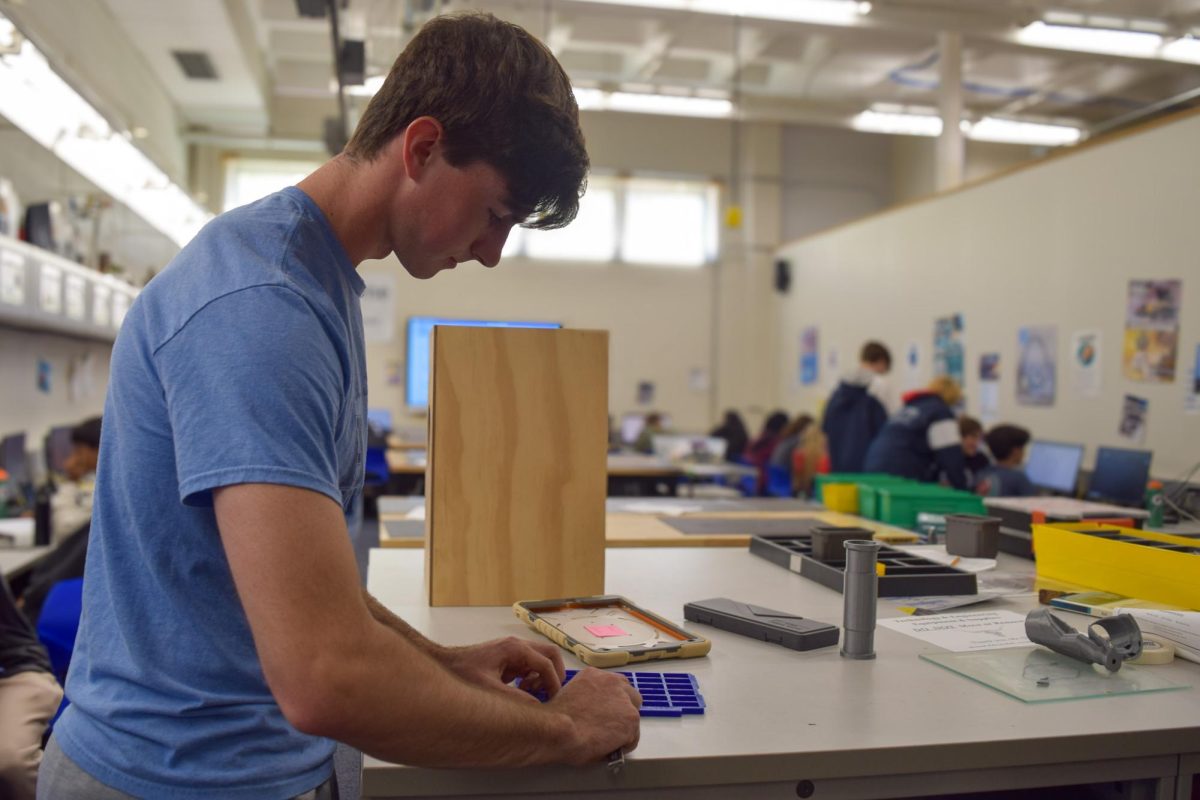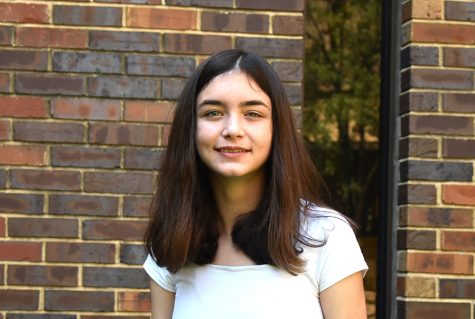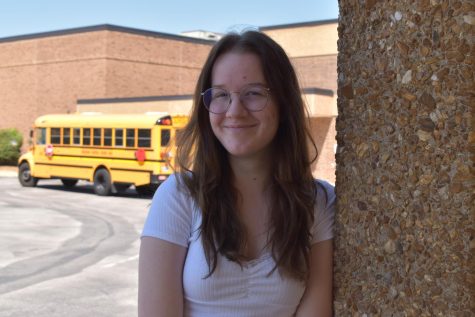Foreign language teacher Blair Hopkins has received many emails throughout her time with Teach for America. However, one of these emails offered Hopkins a new opportunity to continue her teaching career. Last month, Teach for America’s St. Louis branch announced an Excellent Fellowship program consisting of 11 teachers from across the St. Louis area; this includes both St. Louis city and its surrounding suburbs. Hopkins was one of these 11 teachers selected to participate in the program. Though Hopkins had been a part of Teach for America, she recently rejoined this year as an alumnus.
Teach for America aims to double the number of students who reach critical educational milestones by 2030, including the development of reading, math and critical thinking skills. The organization was founded in 1990 to end educational inequity by training teachers to teach in lower-income and high-need schools.
“I like how passionate [Teach for America is]. Teach for America’s biggest goal is closing the education gap,” Hopkins said. “It is a massive, massive undertaking to attempt to solve that problem, but they are so focused and so convinced that we will eventually get there as a nation that it’s inspiring to be part of it.”
Hopkins first became involved with Teach for America in 2008 as a teacher in Las Vegas. She previously taught English to adults in Argentina who needed to learn the language for their careers. Without a formal teaching background or education major, Teach for America offered Hopkins the opportunity to become a certified teacher when she moved back to the United States.
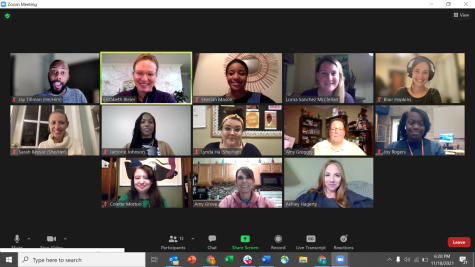
“I became a teacher through Teach for America in Las Vegas in 2008 and I taught in high school there from 2008 to 2010. Because of that, I’m still part of their alumni network,” Hopkins said. “I saw this fellowship, and I thought it looked cool and tied in well with what I was already trying to work on in my classroom this year.”
Teach for America aims to implement new educational techniques into the classroom. One of these methods is the Universal Design for Learning which aims to find the best teaching methods through research-based studies. This teaching method seeks to access, build and internalize three forms of education, including engagement, representation and action & expression through new teaching methods.
“One really interesting thing from the first module of work was how important it is for students to be engaged in what they’re learning. No one student, kid or adult learns anything if they’re not focused and engaged with that thing,” Hopkins said. “[The Excellent Fellowship program] has made me reflect on how much time students spend at school because it’s hard to be engaged for seven hours every single day and [with] everything that you’re doing.”
As a part of the Excellent Fellowship program, Hopkins meets virtually once a month to discuss her teaching methods with other teachers throughout the St. Louis area. This meeting includes over 20 hours of cohort and professional development meetings over the school year.
“In between every meeting, we have work that we’re supposed to do, so we learn about a particular element of teaching. We try it in our classrooms, and then we gather a little bit of data on how it went,” Hopkins said. “There are elementary school teachers there, and there are middle school teachers, there’s everything. It’s cool because you can see how there’s a lot to learn from all of those different teachers with different backgrounds.”
The Excellent Fellowship program offers teachers a $500 reward as a part of participating in the program. Hopkins plans on using this money to pursue her National Board Certification. National Board Certification recognizes excellent teaching and involves four different components over three years. These components include three other portfolios on classroom performance and a test certifying knowledge on the topic they teach. Hopkins hopes to become National Board Certified in French, which includes knowing the history and culture centered around the language.
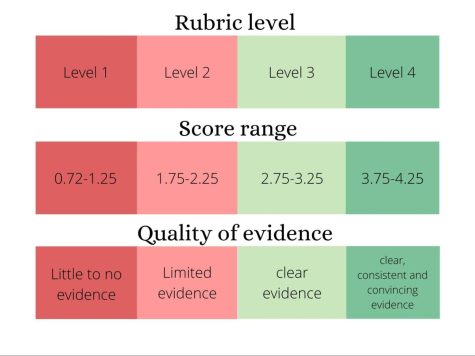
“It’s a very long process, but I wanted to do it because other people that I know said that it was a great professional development experience [and] they felt like they became a better teacher for doing it,” Hopkins said.
Hopkins heard back from the National Board on Dec. 11 following the previous submission of her portfolios back in June. She scored a level three range on her first three components. To achieve National Board Certification, Hopkins needs to complete Component four by the end of this school year.
“The [Excellent] fellowship [program] will help me achieve National Board certification [as] I can take what I’m learning through the fellowship program and apply it in my classroom,” Hopkins said. “[I can then] write about it and explain for [the] National Board how it helped me become a better teacher. So it’s a cool opportunity and well-timed for me.”
Hopkins plans on implementing the practices she has learned from the Excellent Fellowship program into her classroom teaching. This includes the use of self-guided learning and self-assessments. Hopkins has also considered changing her cellphone policy and classroom structure to foster engagement within her classroom.
“I think in education, we’re moving away from the idea that the teacher holds all the knowledge and [that] there is no way to learn without someone who knows more than you are imparting knowledge to you,” Hopkins said. “We’re learning a lot more that people can teach themselves things, [that] people can learn at their own pace and that everybody learns differently.”


![Foreign language teacher Blair Hopkins stands by the smart board while she teaches her Spanish One class about different food items. Though Hopkins began with teaching French, she now teaches both French and Spanish classes. “Self-pacing is the biggest thing I've tried to take away [from the Excellent Fellowship program] because there's no class in the world where every single person needs exactly 10 minutes to do a task,” Hopkins said. “I'm trying to learn more how to set it up so that everybody can work at their own pace.”](https://pwestpathfinder.com/wp-content/uploads/2022/01/Hopkins1-900x600.jpg)
![Focused on providing exceptional service, sophomore Darsh Mahapatra carefully cleans the door of a customer’s car. Mahapatra has always believed his customers deserve nothing less than the best. “[If] they’re trusting us with their car and our service, then I am convinced that they deserve our 100 percent effort and beyond,” Mahapatra said.](https://pwestpathfinder.com/wp-content/uploads/2025/10/DSC_0018-1200x800.jpg)
![Sophomore Aleix Pi de Cabanyes Navarro (left) finishes up a soccer game while junior Ava Muench (right) warms up for cross country practice. The two came to Parkway West High School as exchange students for the 2025-2026 school year. “The goal for the [exchange] program is to provide opportunities for both Parkway students and our international exchange students to learn about other cultures, build connections and become confident, capable, curious and caring — Parkway’s Four C’s — in the process,” Exchange Program Lead Lauren Farrelly said.](https://pwestpathfinder.com/wp-content/uploads/2025/10/Feature-Photo-1200x800.png)

![Gazing across the stage, sophomore Alexis Monteleone performs in the school theater. The Monteleone family’s band “Monte and the Machine” has been releasing music since 2012, but Alexis started her own solo career in 2024 with the release of her first single, Crying Skies. “My whole family is very musical, [and I especially] love writing [songs with them],” Monteleone said.](https://pwestpathfinder.com/wp-content/uploads/2025/09/DSC7463-1200x798.jpg)
![Amid teaching a lesson to her AP Calculus BC class, Kristin Judd jokes alongside her students in their funny remarks. Judd has always enjoyed keeping the mood light in her classroom, along with on the volleyball court. “[I enjoy] that side talk where you see [or] overhear a conversation and chime in, or somebody says something funny,” Judd said.](https://pwestpathfinder.com/wp-content/uploads/2025/09/image-1200x730.jpg)
![Eyeing the ball, junior Ella McNeal poses for her commitment pictures at Clemson University. McNeal’s commitment comes after months of contact with top Division 1 soccer programs. “ It has taken a lot to get to where I am, but I know that [what] I've already been through is just the beginning, and I can't wait for what is to come,” McNeal said.](https://pwestpathfinder.com/wp-content/uploads/2025/09/IMG_4926-1200x900.jpeg)

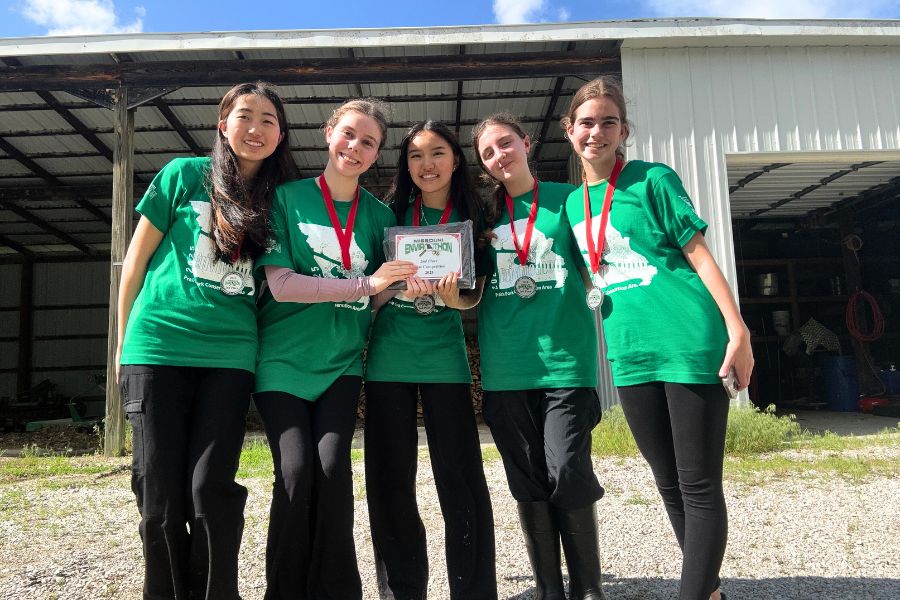
![Senior Adam Zerega stands with senior Dexter Brooks by farm equipment. Zerega often worked with friends and family on his farm. “I've been able to go to my family's farm since I was born. I [spend] at least three weekends a month [on the farm], so I'm there all the time,” Zerega said.](https://pwestpathfinder.com/wp-content/uploads/2025/04/IMG_4872-1200x900.jpg)
